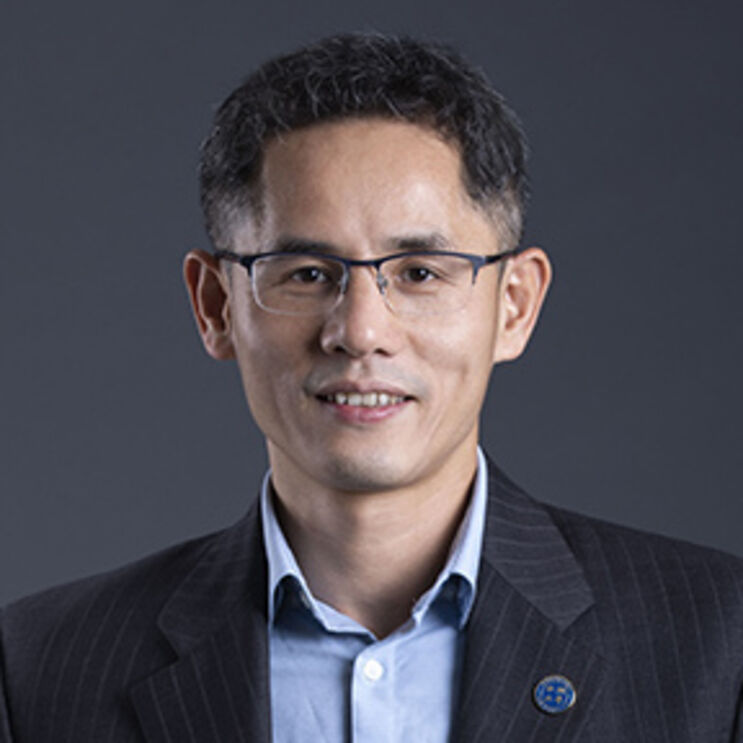"Diversity makes the world colorful. Innovation drives society forward. I believe that Westlake University will be a unique place for open thinking and original research. "
Biography
Professor Zhang obtained his bachelor’s degree in Polymer Science and Engineering from the University of Science and Technology of China in 2001. He then went to the California Institute of Technology to study Biomaterials and received a Ph.D. in Chemistry in 2007. During his post-doctoral period from 2007 to 2010, Prof. Zhang performed research in Biomanufacturing in the Department of Chemical and Biomolecular Engineering at UCLA. In the fall of 2010, Prof. Zhang became an assistant professor at the Department of Chemical Engineering and Materials Science of the University of Minnesota and was promoted to tenured Associate Professor in 2016. Since July of 2019, Prof. Zhang has become a full-time faculty member at the School of Engineering, Westlake University.
History
2019
PI, School of Engineering, Westlake University
2016
Tenured Associate Professor, University of Minnesota
2010
Assistant professor, University of Minnesota
2007
Ph.D. degree, California Institute of Technology
Postdoc, UCLA
2001
Bachelor's degree, University of Science and Technology of China
Research
Developing countries and regions face mounting challenges from population explosion, resource depletion and escalating pollution. Transforming the traditional production process and finding a new industrialization path with less resource consumption and environmental impact have become the top priorities on the development agenda of the manufacturing industry. At Zhang Lab, we harness the power of synthetic biology, green chemistry, materials science, and engineering optimization to design greener chemical production processes and develop new environmentally friendly materials. Our research is to engineer innovative solutions for the circular economy.
Professor Zhang’s research have been highly recognized by well-established mainstream media such as Bloomberg, Newsweek, C&EN, and New York Times. Professor Zhang is a senior investigator of the NSF-funded Center for Sustainable Polymers with a support of 40 million USD over 10 years. One headline-grabbing research in his lab and partner labs is the first-ever scalable, biodegradable polyester material.
Professor Zhang has won various awards, including McKnight Land-Grant Professorship (2015), University of Minnesota Innovator award (2014), American Heart Association National Scientist Development Grant Award (2013), and 3M Nontenured Faculty award (2013).
Representative Publications
1. McClintock, M.K., Fahnhorst, G.W., Hoye T.R., Zhang, K. Engineering the production of dipicolinic acid in E. coli. Metab. Eng. 2018 Jul; 48: 208-217.
2. Bai W., Tai Y.S., Wang J., Wang J., Jambunathan P., Fox K.J., Zhang K. Engineering nonphosphorylative metabolism to synthesize mesaconate from lignocellulosic sugars in Escherichia coli. Metab. Eng. 2016 Nov; 38:285-292. doi: 10.1016/j.ymben.2016.09.007.
3. Peng Y., Lai L., Tai Y.S., Zhang K., Xu X., Cheng X. Diffusion of Ellipsoids in Bacterial Suspensions. Phys. Rev. Lett. 2016 Feb 12;116(6):068303.
4. Tai Y.S., Xiong M., Jambunathan P., Wang J., Wang J., Stapleton C., Zhang K. Engineering nonphosphorylative metabolism to generate lignocellulose-derived products. Nat. Chem. Biol. 2016 Apr;12(4):247-53. doi: 10.1038/nchembio.2020.
5. Tai, Y.S., Zhang, K. 2015. Enzyme pathways: C1 metabolism redesigned. Nat. Chem. Biol.2015, 11:384–386.
6. Wang, J. Wang, J., Zhang, K. Production of Mesaconate in Escherichia coli by Engineered Glutamate Mutase Pathway. Metab. Eng. 2015 Jul 30:190-6. doi: 10.1016/j.ymben.2015.06.001.
7. Tai, Y.S., Xiong, M., and Zhang, K.* Engineered Biosynthesis of Medium-chain Esters inEscherichia coli. Metab. Eng. 2014.Oct 29;27C:20-28. doi: 10.1016/j.ymben.2014.10.004.
8. Xiong, M.; Schneiderman, D.K.; Bates, F.S.; Hillmyer, M. A*.; Zhang, K*. Scalable production of mechanically tunable block polymers from sugar. Proc. Natl. Acad. Sci. USA 2014 111(23):8357-62.
9. Zhang, K., Li, H., Cho K.M. and Liao, J.C. Expanding metabolism for total biosynthesis of the nonnatural amino acid L-homoalanine. Proc. Natl. Acad. Sci. USA 2010 107:6234-6239.
10. Zhang, K., Sawaya, M.R., Eisenberg, D.S. and Liao, J.C. Expanding Metabolism for Biosynthesis of Nonnatural Alcohols, Proc. Natl. Acad. Sci. USA 2008 105: 20653-20658
Contact Us
